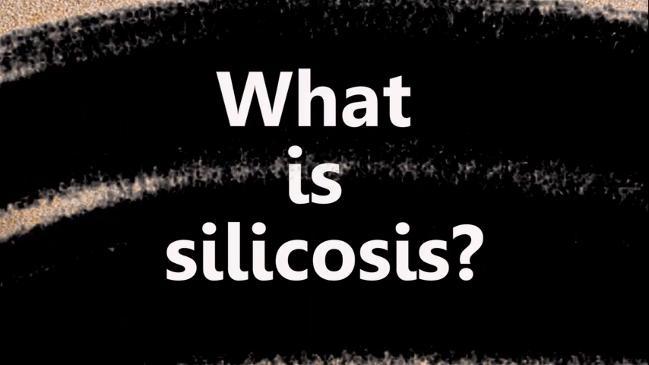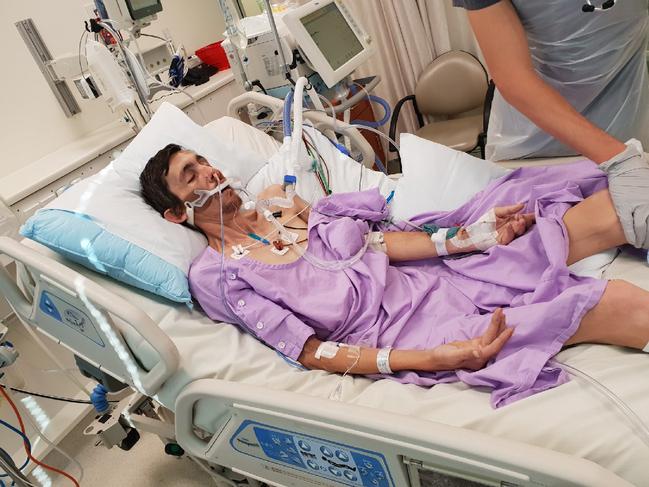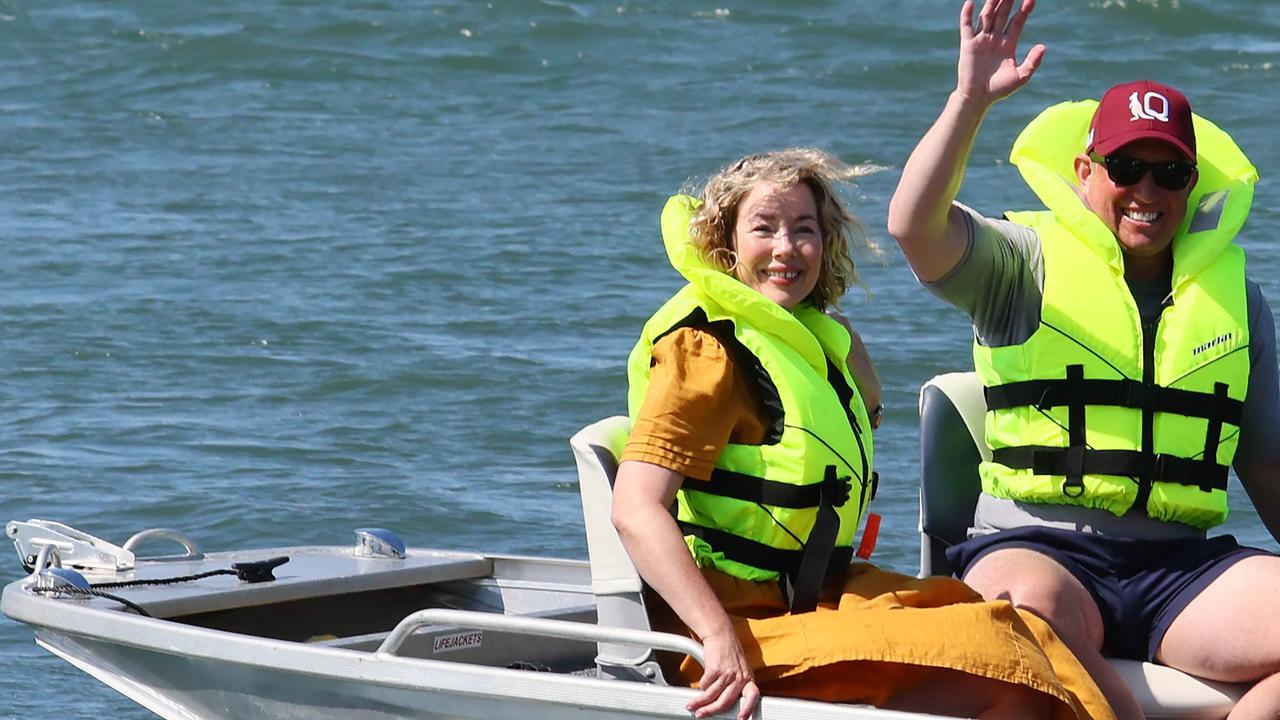Stonemasons urge Queensland Government to act on silicosis
THE Palaszczuk Government has been urged to launch an industry crackdown, as an increasing number of tradies fall victim to this deadly disease that threatens to become the modern-day asbestos.

QLD News
Don't miss out on the headlines from QLD News. Followed categories will be added to My News.
THE Palaszczuk Government has been urged to crack down on the stonemason industry as an increasing number of tradies fall victim to the deadly lung disease silicosis.
Two Gold Coast stonemasons who are battling the disease are among those backing calls for a national ban on dry-cutting practices in stonemasonry workshops.
Leading dust disease litigation lawyer Roger Singh has warned that silica dust from artificial stone used in many kitchen and bathroom benchtops threatens to become the modern-day asbestos.
Mr Singh, Brisbane-based national special counsel for Shine Lawyers, wrote to Queensland Industrial Relations Minister Grace Grace and her interstate counterparts last week calling for a national ban on dry-cutting of fake stone.
“The current method of dry cutting artificial stone creates plumes of dust which, if inhaled over long periods, can potentially lead to silicosis,” he said.

“We know wet cutting, using water to damp down the dust, is much safer but there is no regulation of the industry to enforce this practice.
“We are now speaking with stonemasons who tell us that despite the awareness that’s been raised, the dry cutting continues in their workplaces and wet cutting systems, and enforcement of proper face masks, that could prevent disease are not being installed.
“We have to learn from the awful legacy of asbestos and take action now to prevent more of our young stonemasons succumbing to what is a horrific disease and, in some instances, a terrible death.”
Gold Coast stonemasons Anthony White and Garry Moratti, who both were diagnosed with silicosis last year and became seriously ill, said they were “very angry” at a lack of regulation in the industry.
“Wearing protective gear wasn’t policed at any of my workplaces,” Mr White, 36, said.
“There was so much dust flying around, you could feel the grit on your teeth and taste the dust in your mouth, but I didn’t think it was a problem. I had no idea it could make you this sick. “
“I want to make sure no one else has to go through this. It’s been absolutely horrendous for me and my family who have had to watch me get sicker and sicker.”
Mr Moratti, 49, who has been a stonemason for 30 years, said he collapsed at work one morning and was taken to hospital by ambulance.
“I’m very angry about it,” he said. “I think dry cutting should be banned totally. There are lots of products that people use that are dangerous but not if handled properly with the proper protection and gear.”
“More needs to be done to protect workers who cut engineered stone.”
Mr Singh called for tougher penalties and urged all stonemasons to have lung scans.
Ms Grace said all state stone benchtop manufacturers would be audited by Workplace Health and Safety Queensland by the end of this year.

“I share Shine Lawyers’ concerns about the health of those working in the industry and I am more than happy to hear first-hand their concerns and listen to suggestions they may have to increase protection to workers from this serious work health and safety issue,” she said.
Under Queensland’s health and safety laws, if it is identified that dry cutting of stone is occurring without proper controls in place, WHSQ will take immediate enforcement action to prohibit the work. Work cannot recommence until appropriate controls are put in place.
Proper controls include workers using tools fitted with a water attachment to suppress dust and the mandatory use of respiratory protective equipment. Employers are required to supply the appropriate respiratory equipment and tools, along with providing information, training, instruction or supervision necessary to protect workers from risks to their health and safety arising from work carried out.
Last year the Queensland Parliamentary Coal Workers Pneumoconiosis Select Committee examined the effectiveness of the management of the risk of CWP and other lung diseases, including silicosis, arising from the occupational exposure in Queensland.
The Palaszczuk Government responded swiftly to the recommendations made by the Committee, to make sure all workers, regardless of whether they have left the industry or retired, are covered by the workers’ compensation system and by establishing appropriate clinical pathways for the diagnosis of lung dust disease, and exposure to dusts in non-mining industries.
As a result of the Committee’s findings, WHSQ is developing new minimum standard codes of practice on high risk dust areas, which will include stone top bench manufacturing.
The codes of practice will be developed in consultation with industry stakeholders.
“WHSQ recently undertook 10 pilot audits of stone benchtop manufacturers. The pilot audits identified the high-risk work processes so that they can be targeted state-wide.
“The audits involved extensive air monitoring to determine silica exposure levels to ensure appropriate safety measures are in place to protect workers from exposure to silica dust. Several statutory notices were issued as a result of the audit.
“WHSQ audit campaign has now progressed to the second stage. All Queensland stone bench top manufacturers will be audited by the end of 2018.”


